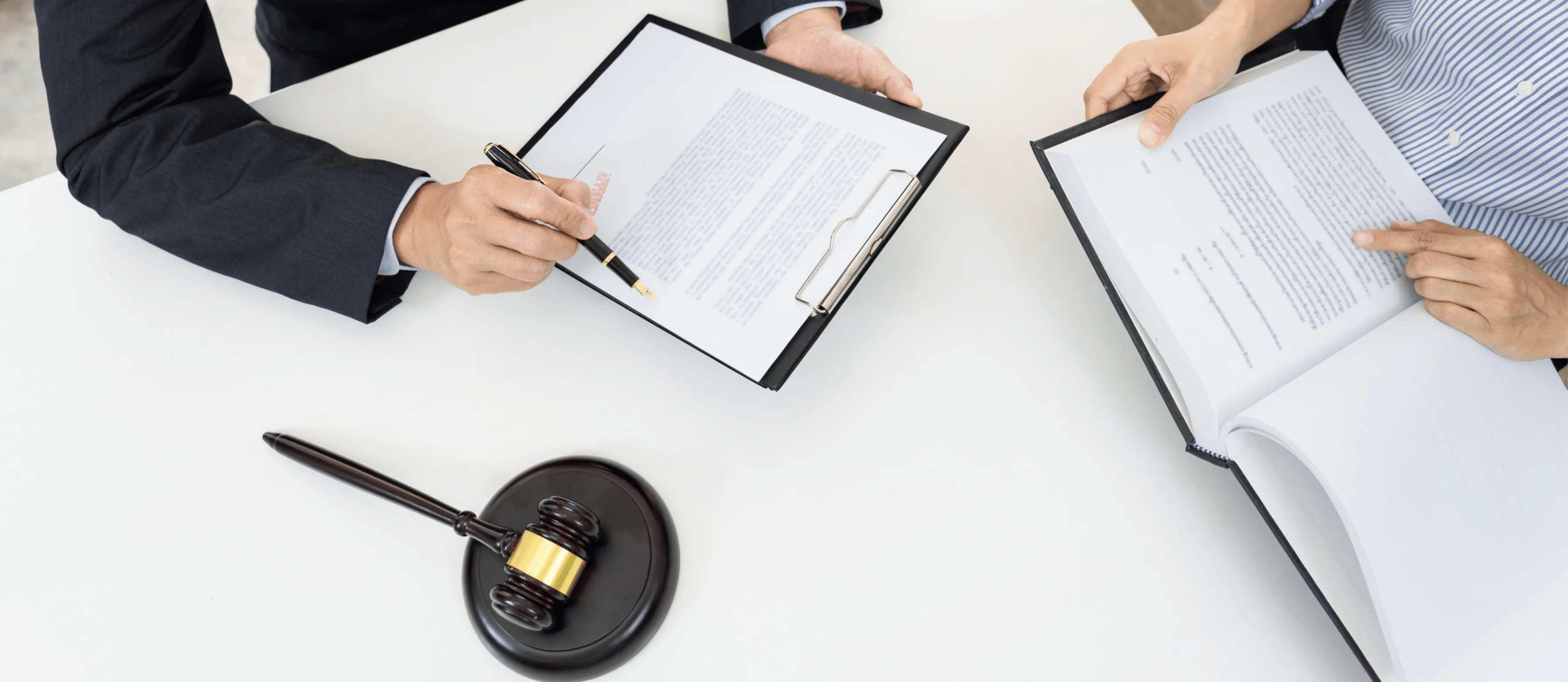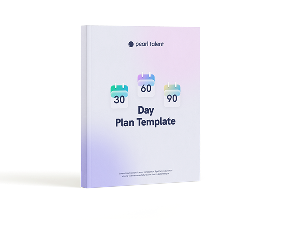Catena is now Pearl Talent! Same mission, new name.
If your legal department is completely overwhelmed and needs support, it may be time to hire a paralegal. Paralegals are valuable assets not just for law firms but also for corporate legal departments, government agencies, insurance companies, nonprofits, healthcare organizations, real estate firms, and more.
Finding the right paralegal requires asking targeted questions for your business needs. At Pearl Talent, we specialize in connecting businesses with exceptional legal support professionals who can seamlessly integrate into your team. Our rigorous vetting process ensures you meet candidates who possess the skills, experience, and work ethic needed to excel in paralegal roles.
This comprehensive guide provides essential paralegal interview questions designed to help you nail your next paralegal interview and ensure your next hire meets the demands of your business.
What is a Paralegal?
A paralegal, also known as a legal assistant, is a professional who performs substantive legal work under the supervision of a licensed attorney. While paralegals cannot provide legal advice, represent clients in court, or set legal fees, they handle critical tasks that keep legal operations running smoothly.
Core responsibilities of paralegals typically include:
- Legal research and writing: Conducting case law research, drafting legal documents, preparing briefs, and summarizing depositions
- Case management: Organizing case files, tracking deadlines, coordinating with clients and witnesses, and maintaining document management systems
- Document preparation: Drafting contracts, pleadings, discovery requests, and correspondence
- Administrative support: Scheduling depositions, filing court documents, managing calendars, and maintaining client communication
- Litigation support: Assisting with trial preparation, organizing exhibits, creating case timelines, and coordinating expert witnesses
Paralegals may hold associate degrees, bachelor's degrees, or certificates in paralegal studies. Many also pursue voluntary certification through organizations like the National Association of Legal Assistants (NALA) or the National Federation of Paralegal Associations (NFPA). Many paralegals combine formal education with strong organizational skills, attention to detail, and a solid understanding of legal procedures and ethics to be successful in their paralegal career.
Top 15 Paralegal Interview Questions
When interviewing paralegal candidates, focus on questions that reveal their technical knowledge, problem-solving abilities, and professional judgment. These questions help you assess whether candidates can handle the demands of your specific legal environment.
1. What motivated you to pursue a career as a paralegal?
This question reveals the candidate's passion for legal work and long-term career commitment. Look for answers that demonstrate genuine interest in the legal field, understanding of the role's responsibilities, and alignment with your organization's values.
2. Describe your experience with legal research. What resources and databases are you most comfortable using?
Strong research skills are fundamental to paralegal work. Candidates should discuss familiarity with resources like Westlaw, LexisNexis, PACER, or other relevant databases. They should explain their research methodology and how they verify information for cases.
3. How do you prioritize tasks when managing multiple deadlines?
Legal work involves constant deadline pressure and competing priorities. Effective paralegals should describe specific organizational systems, time management techniques, and how they communicate with attorneys about capacity and timeline concerns.
4. Tell me about a time when you discovered an error in a legal document. How did you handle it?
This question assesses attention to detail, professional judgment, and communication skills. Strong candidates will explain how they identified the error, immediately notified the supervising attorney, and took steps to correct it while preventing future mistakes.
5. What types of legal documents have you drafted or prepared?
Understanding a candidate's document preparation experience helps determine if they match your needs. Listen for specific examples like pleadings, motions, discovery requests, contracts, or correspondence, and ask about their familiarity with your jurisdiction's formatting requirements.
6. How do you maintain confidentiality and handle sensitive client information?
Confidentiality is paramount in legal work. Candidates should discuss their understanding of attorney-client privilege, ethical obligations, and practical measures they take to protect sensitive information both in physical and digital formats.
7. Describe your experience with case management software and legal technology.
Ask about specific platforms they've used (Clio, MyCase, PracticePanther, etc.) and their adaptability to learning new systems. Technical competence can significantly impact and improve productivity.
8. How do you ensure accuracy when working on detailed assignments?
Accuracy is non-negotiable in legal work. Strong candidates will describe specific quality control methods like double-checking citations, using checklists, proofreading techniques, or peer review processes they've implemented.
9. Tell me about a challenging project you managed from start to finish.
This behavioral question reveals project management abilities, initiative, and problem-solving skills. Listen for how they planned, executed, overcame obstacles, and measured success on complex assignments.
10. How do you handle working with difficult clients or opposing counsel?
Interpersonal skills are often the key to success in legal environments. Candidates should demonstrate professionalism, emotional intelligence, and strategies for maintaining composure while representing their attorney and firm appropriately.
11. What is your understanding of the ethical boundaries for paralegals?
Paralegals must understand they cannot provide legal advice, represent clients, or set fees. Strong candidates will discuss their knowledge of unauthorized practice of law rules and how they navigate ethical gray areas with attorney supervision.
12. Describe a situation where you had to work under significant time pressure. How did you manage?
Legal emergencies and urgent filings are common. Look for examples demonstrating composure under pressure, effective time management, communication with team members, and quality maintenance despite tight deadlines.
13. How do you stay current with changes in laws, procedures, and legal technology?
Continuous learning is essential in the evolving legal field. Candidates might mention CLE courses, professional associations, legal publications, webinars, or other educational resources they use to maintain and expand their knowledge.
14. What experience do you have with e-discovery or electronic filing systems?
Modern legal practice increasingly relies on electronic processes. Assess familiarity with e-discovery platforms, e-filing systems like PACER or state-specific portals, and document review technologies relevant to your practice.
15. Why are you interested in working for our organization specifically?
This question tests whether candidates researched your organization and understand your practice areas, culture, and values. Thoughtful answers indicate genuine interest and higher likelihood of long-term fit and engagement.
Paralegal Interview Questions by Industry
Different legal sectors require specialized knowledge and skills. Below are suggestions for you to tailor your interview questions to match your industry's unique demands.
Corporate Paralegal Questions
Corporate paralegals support business transactions, governance, and compliance. Key questions include:
- What experience do you have with corporate formation documents and governance filings?
- How familiar are you with SEC regulations and corporate compliance requirements?
- Describe your experience managing corporate records and minute books.
- Have you assisted with mergers, acquisitions, or due diligence processes?
Litigation Paralegal Questions
Litigation paralegals need strong case management and court procedure knowledge:
- What is your experience with the discovery process and document production?
- How have you assisted with trial preparation and exhibit organization?
- Describe your familiarity with court rules and filing requirements in our jurisdiction.
- What experience do you have coordinating depositions and managing witness preparation?
Real Estate Paralegal Questions
Real estate transactions require specific documentation expertise:
- What types of real estate transactions have you supported (residential, commercial, refinancing)?
- How familiar are you with title searches, surveys, and property due diligence?
- Describe your experience preparing closing documents and coordinating closings.
- What is your understanding of real estate financing and mortgage documentation?
Intellectual Property Paralegal Questions
IP paralegals need technical knowledge and attention to procedural deadlines:
- What experience do you have with patent, trademark, or copyright applications?
- How familiar are you with USPTO procedures and filing requirements?
- Describe your process for managing IP docket deadlines and renewals.
- Have you conducted trademark searches or monitored IP portfolios?
Family Law Paralegal Questions
Family law requires empathy alongside technical skills:
- How do you handle emotionally charged situations with sensitive clients?
- What experience do you have preparing divorce pleadings, custody agreements, or financial affidavits?
- Describe your familiarity with family law procedures in our jurisdiction.
- How do you maintain professional boundaries while showing compassion?
Questions Paralegal Candidates Should Ask the Interviewer
Whether you’re new in your paralegal career or a seasoned veteran, asking engaging questions can set you apart from other candidates. Here are questions candidates should ask at the end of an interview, and as the interviewee, these questions can raise green flags about the candidate you are interviewing.
About the role:
- What are the primary practice areas I would support?
- How many attorneys would I work with directly?
- What does a typical day or week look like in this position?
- What are the biggest challenges facing the legal team currently?
About growth and development:
- What opportunities exist for professional development and continuing education?
- How does the organization support paralegal certification or advanced training?
- What does the career path look like for paralegals in this organization?
About culture and expectations:
- How does the team collaborate and communicate?
- What qualities make someone successful in this role?
- How is performance evaluated and feedback provided?
- What is the approach to work-life balance during busy periods?
About technology and processes:
- What case management or legal technology platforms does the team use?
- How does the organization approach process improvement and efficiency?
These questions reveal what matters most to candidates and create dialogue about expectations, helping both parties assess compatibility.
Final Thoughts
Hiring the right paralegal can dramatically improve your legal department's efficiency and case management. By asking targeted paralegal interview questions that assess interpersonal skills, ethical understanding, industry-specific knowledge, and cultural fit, you position your organization to find a paralegal that can move the needle forward in your legal department.
The interview process is your opportunity to evaluate not just what candidates have done but how they think, solve problems, and integrate into your team. Pay attention to communication skills, professionalism, attention to detail, and genuine enthusiasm for the work. The best paralegals combine strong technical competencies with emotional intelligence and adaptability.
Pearl Talent specializes in connecting businesses with top-tier legal support professionals who are pre-vetted, highly skilled, and ready to make an immediate impact. Our comprehensive screening process evaluates candidates' technical abilities, work ethic, and cultural alignment, ensuring you meet only the most qualified professionals.
Don't let the burden of recruitment slow down your legal operations. Partner with Pearl Talent today and gain access to a curated network of talented paralegals who can seamlessly integrate into your team. Visit our website to learn more about how we can streamline your hiring process and connect you with exceptional legal talent that drives your organization forward.
Frequently Asked Questions
What qualifications should I look for in a paralegal candidate?
Look for candidates with formal paralegal education (associate degree, bachelor's degree, or paralegal certificate), relevant work experience, and strong technical skills. Professional certifications from NALA or NFPA, while voluntary, demonstrate commitment to the profession and mastery of core competencies.
How many years of experience should a paralegal have?
Experience requirements vary based on your needs. Entry-level paralegals with strong education and internship experience can excel with proper training and supervision. For complex litigation or specialized practice areas, seek candidates with 3-5+ years of relevant experience who can work more independently.
What soft skills are most important for paralegals?
Critical soft skills include attention to detail, organization, time management, communication (written and verbal), professionalism, discretion, adaptability, and the ability to work under pressure. Strong interpersonal skills help paralegals collaborate effectively with attorneys, clients, and court personnel.
Should I hire a paralegal with general experience or specialized knowledge?
This depends on your practice area and case volume. Specialized knowledge is valuable for technical fields like intellectual property, corporate law, or complex litigation. However, strong general paralegals with excellent research and organizational skills can adapt to most practice areas with appropriate training.
How do I assess a paralegal's technical skills during an interview?
Beyond asking about their experience, consider requesting work samples (with confidential information redacted), administering practical tests like document review exercises, or asking them to walk through their research or case management process. References from previous supervising attorneys provide valuable insight into technical competence.
What are red flags to watch for when interviewing paralegal candidates?
Warning signs include inability to articulate the ethical boundaries of paralegal work, lack of attention to detail in application materials, poor communication skills, inability to provide specific examples of past work, excessive job-hopping without explanation, or negative comments about former employers or attorneys.
Originally Published
October 31, 2025




.svg)



.webp)














